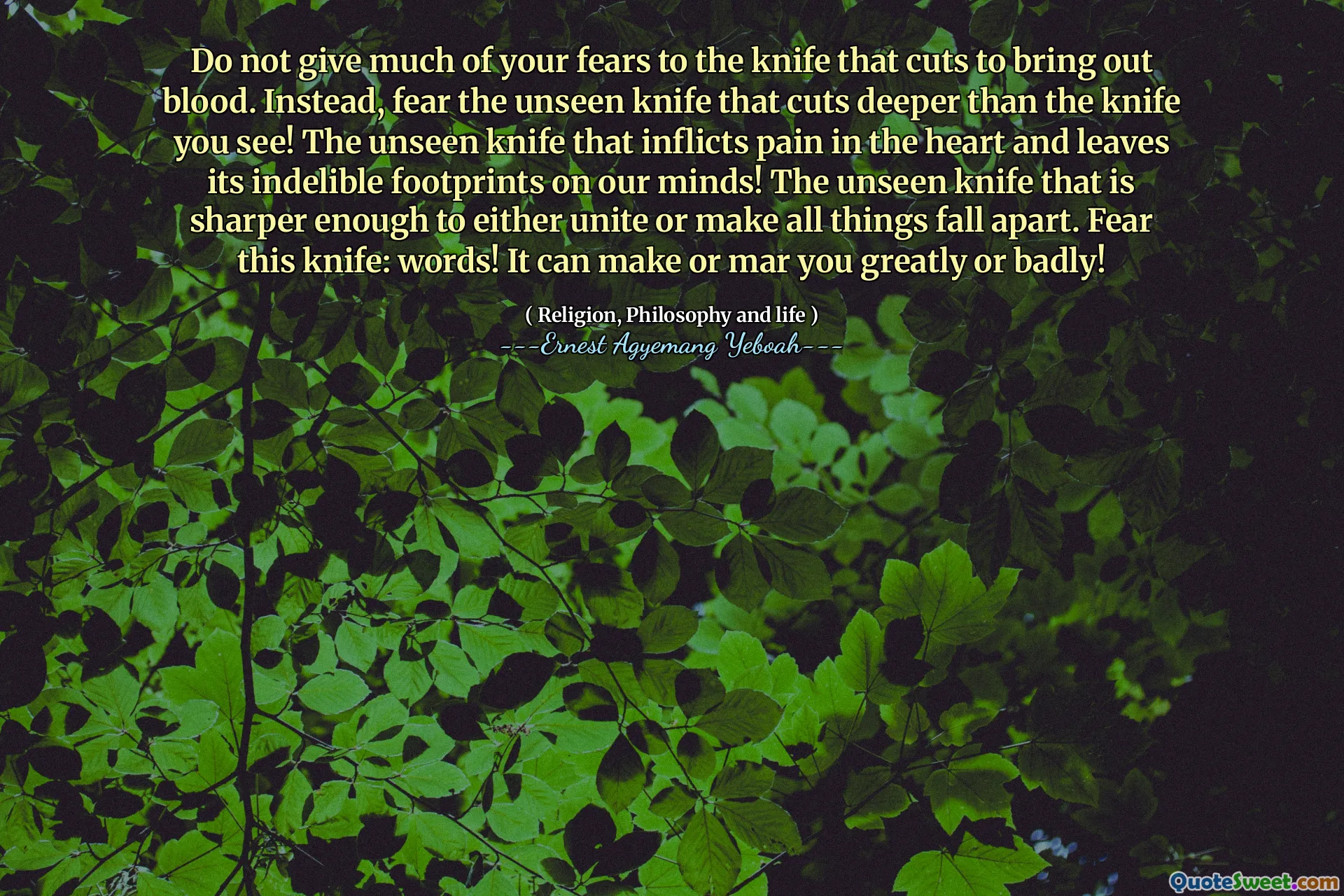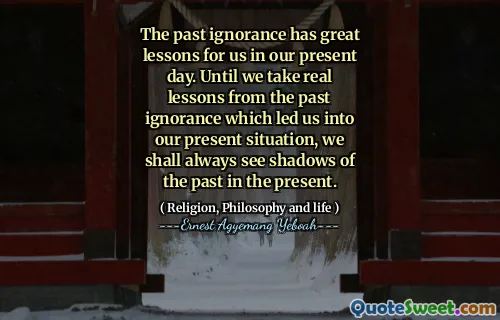
Do not give much of your fears to the knife that cuts to bring out blood. Instead, fear the unseen knife that cuts deeper than the knife you see! The unseen knife that inflicts pain in the heart and leaves its indelible footprints on our minds! The unseen knife that is sharper enough to either unite or make all things fall apart. Fear this knife: words! It can make or mar you greatly or badly!
This quote draws attention to the profound impact that words can have on our lives, often more lasting and painful than physical injuries. Many tend to focus on tangible threats—like violence or physical harm—while overlooking the power of language and communication. Words possess a unique quality; they can heal, inspire, and bring people closer, but equally, they have the potential to wound, divide, and destroy. The metaphor of the unseen knife underscores how language operates beneath the surface, quietly shaping perceptions, emotions, and relationships. It reminds us that what we say and what others say to us can leave lasting scars on the mind and heart. Just as an actual knife can cause physical pain, words can create emotional and psychological wounds that are often more difficult to heal because they are intangible and seep into our subconscious. They can foster unity or, conversely, sow discord and chaos. Recognizing this power invites us to exercise caution, kindness, and mindfulness in our speech. We must understand that words are not trivial; they are tools that can uplift or destroy. By respecting the potency of words, we can foster better understanding and compassion in our interactions. Ultimately, this quote encourages us to be mindful of our language, appreciating its profound influence on personal and collective well-being. Selecting words carefully can be the difference between causing deep, enduring pain or nurturing healing and hope.
(Religion, Philosophy, and Life) — ---Ernest Agyemang Yeboah---







